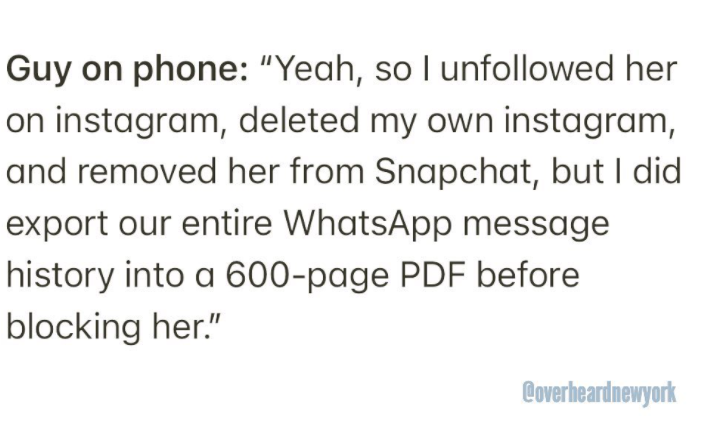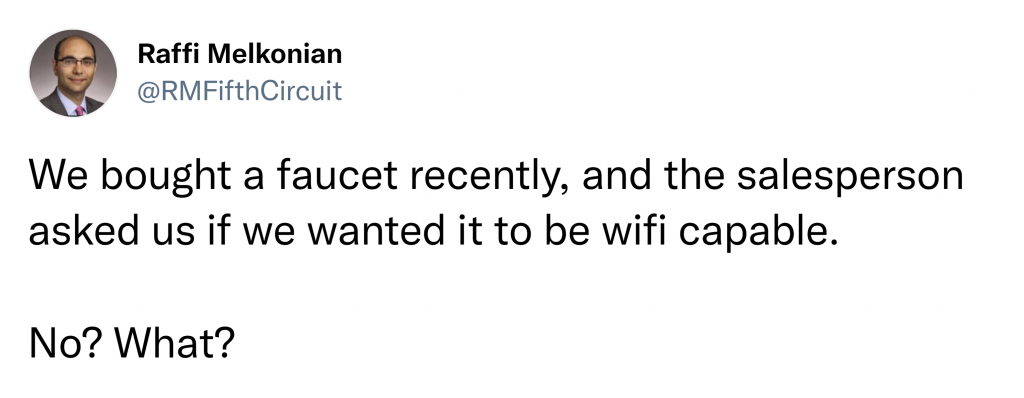It’s April 4. Batter up! Baseball season begins Thursday afternoon after the owners locked out the players in a labor dispute and washed out the original start date.
Today’s Spotlight is 1,245 words — about a 4 1⁄2 minute read.
2. News To Know Now
Quoted:“Only 10 percent of offices have been equipped with video conferencing software. We expect that more and more will be as … companies will start reopening and allow people to work from home”— HP CEO Enrique Lores on a call with analysts last Monday after HP spent $1.7 billion to acquire conferencing device maker Poly.
a) Wyze home security cameras were finally patched after Bitdefender told the company about an issue nearly three years ago. Wyze effectively said that the whole network had to be compromised to reach the cameras, but it was still an issue. This is also your reminder you should not ignore software patches.
b) Barnes & Noble removed the ability to purchase books and audiobooks via the Google Play Store for its Nook app (but not most devices). The company’s move apparently addresses Google’s revenue sharing model. Users can still purchase directly from B & N.
3. Search Engine News — Meta Descriptions & Domain Authority
We’re always going to tell you that “domain authority” isn’t a metric that Google uses to determine how a page ranks in its search engine regardless of any well meaning industry articles to the contrary that you read. Google has insisted that for years while its proponents insist that there is a correlation. Because we’re humans who understand this field, we can provide context to the search results you might see.
Google search exec John Mueller was quoted as saying on Reddit last week:
I’m kinda torn. On the one hand, you do not need DA for Google Search. Google doesn’t use it *at all*. If you’d like to level your site up in search, you’d need to focus on something else, or at least use other metrics for it. This is mostly why DA as a metric is frowned upon by many SEOs. For context, I don’t think I’ve ever looked up the DA for a site in the 14 years I’ve been doing this.
Please be wary about snake oil posing as a delicious tonic.
We were tickled last week (pre-April Prank Day) to see that one SEO used the new Google Docs summarize feature to create meta descriptions. Upshot: it can write meta descriptions at scale, but it’s really an excellent ideation tool. This is exactly what we see using machine learning techniques for search. You must have a subject matter expert reviewing the work because the people creating the documents and the software summarizing it are imprecise.
4. Spotlight Explainer — Google Search Accuracy Tools
New Google search accuracy tools can be used by searchers to create context around the results they see. The company’s hope is to elevate highly sourced reporting, provide an easy way to review multiple fact checks, and to provide even more tools to evaluate search sources. They apparently didn’t plan to give me an excellent transition between sections three and four, but sometimes you get lucky.
Creating an official looking website with disinformation is easy. Most people in the digital marketing workforce can do that in just an hour or two using free, non-traceable tools. That is why search accuracy tools are so important.
What tools are there?
The one that has me most excited is a brand new label rolling out in the U.S. that shows that a source is “highly cited.” Think of a local news story where national outlets quote a local TV station or newspaper. This enables someone to see a visual cue directly in the search results about which websites are most trusted by others.
What about fact checks?
I love Google’s Fact Check Explorer and regularly review it because it aggregates fact check information from around the world. Using the simple search function, you can see results about a specific topic. The fact check source is identified as part of this tool’s results. There’s also a link to see all of the most recent fact checks.
Other Google search accuracy tools
There’s an expanded version of the “rapidly changing information” flag you may have seen if you’ve searched for news about a still developing issue. The flag says “It looks like these results are changing quickly” and provides tips to help you evaluate the current links.
There’s also an expanded version of the “About This Result” function that includes what other sites publish about that site as well as how the site describes itself. You can read both directly in Google before you click.
Why is Google doing this?
In some ways, Google fobbing this evaluation off on users is the organization’s continuing attempt to avoid creating rules about the accuracy of websites and the information they publish. This is the publisher vs. platform argument Big Tech companies make, and it’s a tough issue.
Google (or Facebook or Microsoft) will tell you that it’s their job to organize the world’s information, and that it’s your job to evaluate the veracity of that information. Exceptions are made for public emergencies such as the pandemic or wars, but I recall a conversation with someone who had been arrested and later found not guilty at trial. This person wanted the information removed from search engines, but Google’s stance in such matters is pretty firm. The arrest occurred and was a fact, perhaps even a newsworthy fact. Evaluating the arrest and subsequent trial is a searcher’s task.
5. Did That Really Happen? — Deion Sanders’ Amputation Not COVID-Related
NFL great Deion Sanders had complications from foot surgery last year that led to two toes on his foot being amputated. Some social media users began posting hoaxes that blamed the amputation on the COVID-19 vaccine instead of those complications. Here is the Reuters fact check.
6. Following Up — Facebook Elevated Misinformation Because of System Error
We’ve written often about the algorithms that control Facebook’s news feed. We also told you last year that the company promised to downrank political content and hate speech. Now The Verge reports that a Facebook system error did not demote or throttle issues related to nudity, violence, or disinformation published by Russian state media.
7. Protip — 10 Free Ebooks Reader Apps
You don’t need to buy a Kindle or have Barnes & Noble tell you where you can buy books. PC Mag assembled this lovely list of free ebook reader apps for all sorts of devices.
8. Screening Room — Eva Longoria & The 5D Model to Fight Street Harassment
9. Science Fiction World — CrowdBot’s Wheelchair
Some shoppers in Switzerland are getting a sneak peek at the Qolo robotic wheelchair being developed by a nearby team of researchers. The news is exciting because as the lab’s director says, “You hear a lot about self-driving cars, but not about robots that could be moving among pedestrians.” You can read more and see video here.
10. Coffee Break — Forgotify
This program made waves years ago because Spotify had millions of tracks that had never been listened to on the service. That issue still exists so hop on over to Forgotify and let it spin you a tune that will make today a really special day for everyone who created that song.
11. Sign of The Times





